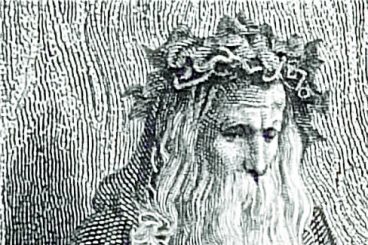AN article exploring “The Devotion of Jean Armour” was published in regional magazine The Gallovidian Annual back in 1933.
Author Nita Gilruth examined the ‘wifely devotion’ of Jean to Robert Burns, despite everything he put her through.
She said: “Than Jean, few women can have had greater need of courage when entering upon conjugal life. A poet differs from ordinary mortals in temperament. His emotions are deeper and more readily stirred and he is more acutely conscious of pain or pleasure than more prosaic matter of fact mankind.
“The mental exertion entailed in the exercise of his muse, for this will not be denied, allied to his inborn waywardness of nature, causes his spirits to fluctuate during his intervals of creative expression between deep melancholy and exuberant joy.
“When Burns welcomed his young wife to her roof-tree at Ellisland he was both bard and husbandman. For his ‘Bonnie Jean’ the unfolding years could thus hold but one promise, and that of a life of constant self discipline, sacrifice, effacement and toil.
“Jean Armour lived her life nobly and generously. Whatever the years brought of happiness, sorrow, or trial, she gave to her home a devotion as zealous as it was unfaltering.”
Gilruth describes how she “lavished upon Burns” care and understanding, even when he “fell into a reverie and was wont, particularly at Ellisland, to seek solitude on a particularly shingly verge of the Nith”.
At those times, his understanding spouse is said to have remained affectionate and generous.
“Neither molesting nor upbraiding, she interrupted his chosen solitariness only when a lowering sky, a surly wind, or driving rain offered a menace to his health,” it is said.
The article goes on to explain her ‘sympathetic consideration’ further, adding: “Burns’ sensibilities, as in persons of rich poetical vein, were quickly awakened. Courted alike for his fame, his wit, and his not inconsiderable degree of virile beauty, his homecomings from his excise journeyings were delayed, his time and attention were greatly occupied by his friendships, and his ardour on occasion exceeded the bonds of conjugal fidelity.
“Such was Jean’s generously affectionate consideration that she unreservedly condoned his marital shortcomings.”
It appears Jean was keen and quick to learn about the rural and farming life upon arriving at Ellisland, as it was new to her, a Mauchline girl.
“She laboured painstakingly under the guidance of her mother in law to acquire proficiency in the duties which devolve upon womenfolk in the conduct of a holding,” reveals Gilruth.
“The customary tasks of the household, in addition, were neither neglected nor forgotten by her.
“Whether resident at Ellisland, or in Dumfries, the neat cleanliness of her home offered, at all times, a warm welcome to her loved ones.
“Jean Armour was a faithful helpmate of Burns. Caring, tending and cherishing, she fulfilled her wifely duties abundantly.
“The story of her love and labour must ever ennoble the history of the border country.”
























